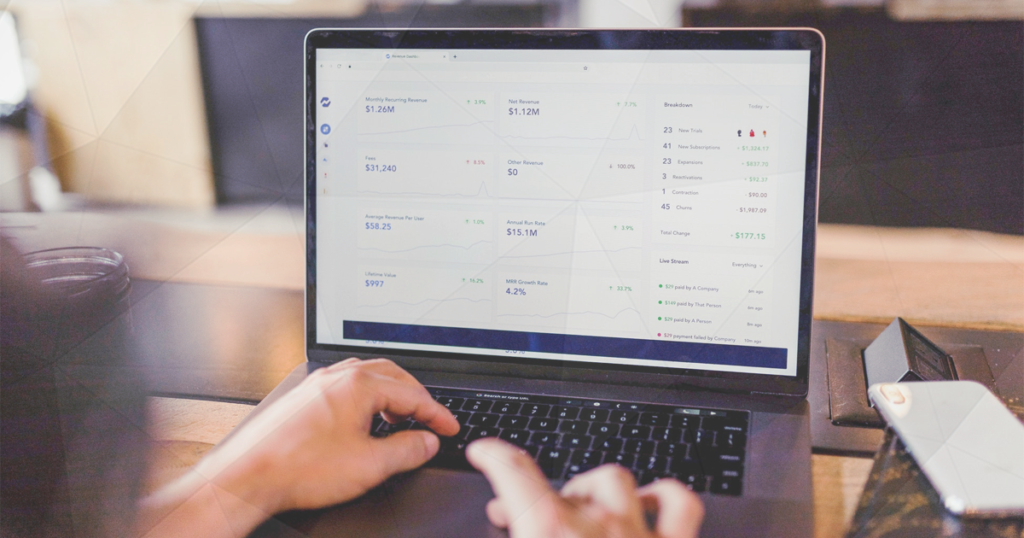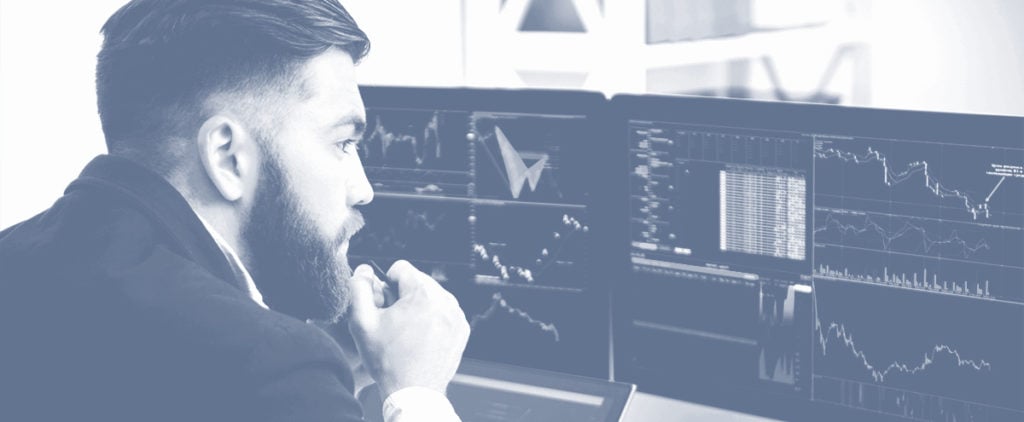Why FOMO Can Obliterate Your Trading Profits

Trading successfully depends on a few factors. One of these is your mindset. If you’re able to cultivate the most effective, resilient mindset you’ll be all set to do well.
However, there is one aspect of your mindset that’s a nightmare.
This aspect can keep you distracted, and can even lose you money.
It’s called FOMO. Otherwise known as ‘fear of missing out’.
What is FOMO?
There’s plenty of science behind the FOMO idea. Back in 2004, an author contributed a piece to the Harbus, which is the periodical at the Harvard Business School. The article was titled: “McGinnis’ Two FOs: Social Theory at HBS”.
This piece put forward two theories, one about the existence of FOMO and another one focusing on another acronym, FOBO. The FOBO acronym stood for ‘fear of a better option’.
The theory goes back to marketing, and a piece written by Dan Herman in The Journal of Brand Management in 2000. Here, the struggle brands have with customer loyalty are tied directly into the fear of missing out experience that customers have. This was seen to be a particularly challenging problem with customers who had stayed with a brand for a long time.
Read: 31 Seriously Good Quotes Traders Can Live By
What does this look like in trading?
The feelings of thousands of traders merge into huge psychological tides that move the markets.
Trading for a Living: Psychology, Trading Tactics, Money Management
Alexander Elder
If you look at the idea of FOMO as a need, a feeling of anxiety, then it will make perfect sense in a trading context. We discussed mindset earlier in this piece. Suffering from FOMO is particularly dangerous when you’re managing positions. If you ‘fear that you are missing out’ on a good trade, and you can’t recognise and control that, what happens when you weren’t ‘missing out’?
If you find yourself presented with the following symptoms, there is a chance you are experiencing FOMO when it comes to trading positions:
- You experience tangible physical changes. Your heart rate may quicken, you may start to sweat
- Your thoughts will become focused on what may happen if you make a trade. You may think about past instances when you ‘missed’ a huge payday
- An urge to make a trade, rather than a decision to make one
Perhaps that last one perfectly explains what FOMO can do to us. We can be so caught up in the feeling that there is a ton of money out there that it can override our logic. Think back to when you were a new trader (even paper trading), and you saw a position rise massively one minute, then fall the next.
Did you ever try and ‘catch’ the rise, no matter how short-lived?
Exactly.
You were feeling an urge right there.
So what causes it?
The easy answer is being human.
We can all pretend that we’re cold, logical beings that don’t suffer from stress and anxiety, but that isn’t true. At some point, we’re going to suffer from heightened anxiety, and this is usually because trading contains emotional and psychological risks. We either take these risks or we don’t.
When it comes to causes, the deep psychological and emotional stuff basically stems from:
Impatience
This is common, especially among inexperienced traders. But everyone is prone to thinking that they simply cannot wait for a position to change. Or they may know there are economic conditions on the horizon that should change things dramatically on the trading floor, but they aren’t seeing it happen yet.
Impatience comes into it because trading is something that takes time. Even the most volatile markets and securities have time conditions. Even if you’re watching a jagged chart that is changing every couple of seconds, it’s still taking that couple of seconds. And impatience can mean a loss of money, simply because of acting at the wrong moment.
Lack of reality
This is where you have a high figure amount that you want to make. There could be any number of reasons for this. The most common one is ridiculously high expectations, where you feel that you should be making a large amount of money, and usually in a short space of time.
When you don’t make millions by lunchtime, the FOMO thing starts to creep in, and you end up taking much riskier positions, and leaving your rational brain at the door.
[adinserter block=”3″]And when you think about it, these expectations can lead to you making very bad choices. You may change your initial strategy numerous times, all because you have this unreachable figure in your head.
A lack of reality makes you think you are missing out on what really isn’t there.
Must Read: How to Think Like a Trader and Make the Money Your Deserve
The confidence trap
When things get bad, FOMO comes in through a confidence trap.
Traders who have experienced a catalogue of disasters may think the next big deal (that will save their skins) is just around the corner. If they don’t act, they will miss out.
This is all down to confidence. Everyone who has ever traded knows what it feels like to experience a number of bad trades. You feel you’re making a big mistake. You feel worthless, and simply ‘awful’ at trading. You look at the guys who are doing well and you think they’re better than you.
You’re missing something.
Unfortunately, this aspect of FOMO can mean impulsive, risky trades that are not thought through, and generally lead to a spiral of failures.
If a trader loses confidence in their ability, it can lead to FOMO, and failure.
No Plan
If you don’t actually have a plan for trading, and are just literally jumping into any trade that looks attractive, you are essentially living in a constant state of FOMO.
Everything is up for grabs. It’s easy to exist in a state of FOMO when you feel that you can make money in the next minute. A plan slows things down and brings methodical thinking. Not having one just makes you feel the next trade is going to change your life.
Read:
How to deal with FOMO
Get a system together. If you don’t have a rule or approach to trading, you’re going to suffer from FOMO. As we discussed in the last point about having no plan, if you don’t have anything to protect your thought process from going wild, it will go wild.
Devise a training plan
Put together a training plan so you know exactly what you are expected to do when certain conditions present themselves. If a market swings downwards and looks like it is staying that way, having a plan will give you a process and series of questions to ask yourself. And this will guide every single move you make.
You May Like: 7 Day Trading Techniques and Strategies You Need to Know
Master the art of self-discipline
Develop self-discipline too. You don’t have to live like a monk. But you do have to understand that trading is about making the right decision at the right time. It’s also about managed risk. You will lose money. It doesn’t mean you’ll lose larger amounts tomorrow. It also doesn’t mean that you are owed money by the markets.
Read: Awesome Tips to Prepare Your Trading Journal
Study, study and study some more
The markets are governed by events out of your control. All you can do is study technical and fundamental data and charts, and the news, and make an ‘informed guess’ about the information you see. This will guide your trading.
[adinserter block=”1″]Finally, remember that FOMO is something that can be beaten by taking small steps. The next time you feel the flutter of excitement that comes when you think there is a huge payoff just around the corner, take exactly three minutes to make a cup of coffee and think over what the possible outcomes of a position could be.
You may find that your rational mind suddenly defeats the FOMO mind.





